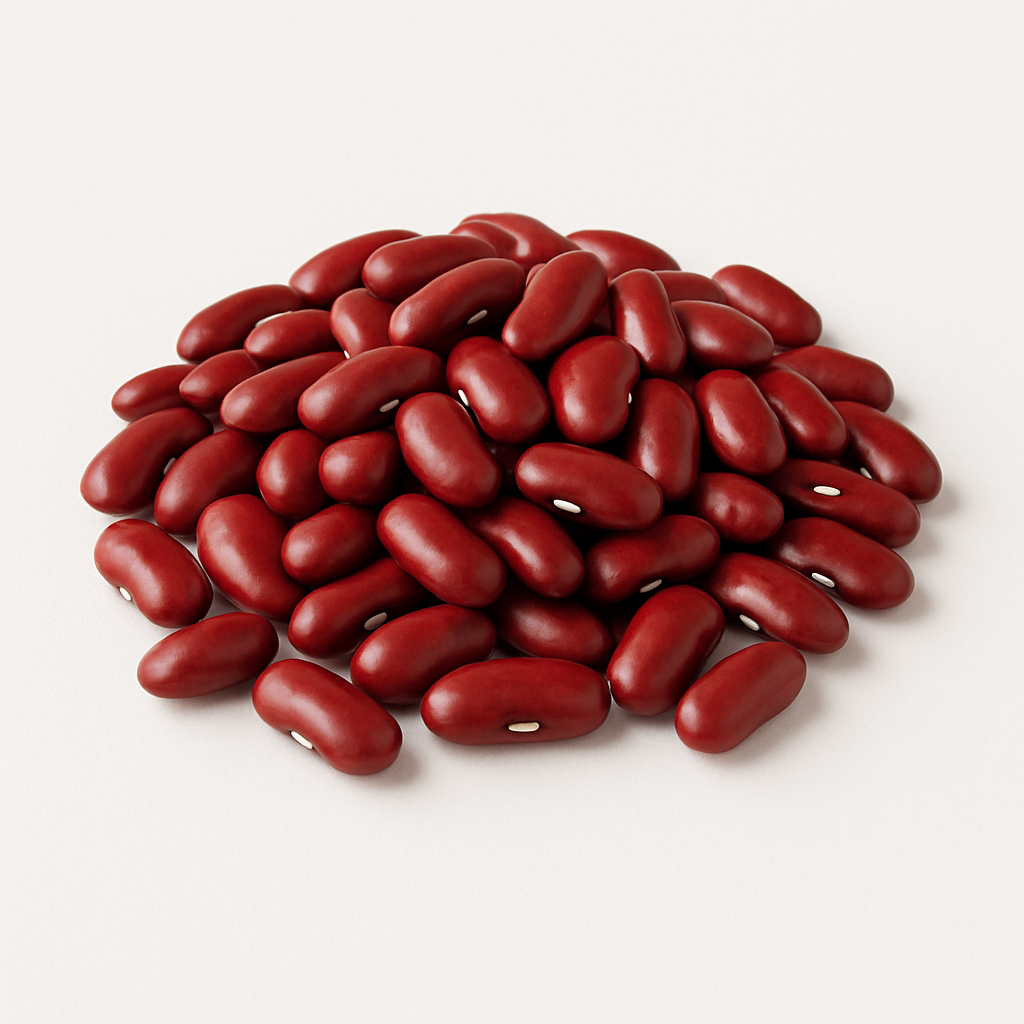Wadi
Kidney beans
Kidney beans
Couldn't load pickup availability
Primary Uses:
1. Culinary use:
- Soups and stews
- Chili
- Salads
- Rice and bean dishes
- Refried beans
- Bean burgers
2. Flavoring use:
- Seasoning blends
- Sauces and dips
- Marinades
- Tacos and burritos
- Casseroles
3. Aroma use:
- None
Note: Kidney beans should be cooked thoroughly before consumption to avoid toxicity.
Other Uses:
1. Medicinal uses: Kidney beans are known to be rich in fiber, protein, and various vitamins and minerals, which can help improve digestion, lower cholesterol levels, and regulate blood sugar levels.
2. Religious uses: In some cultures, kidney beans are considered a sacred food and are used in various religious ceremonies and rituals.
3. Ornamental uses: Kidney beans are often used as a decorative element in gardens and landscapes due to their attractive foliage and colorful flowers.
4. Insect repellent: Kidney beans contain certain compounds that are known to repel insects, making them a natural alternative to chemical insecticides.
5. Dyeing agent: The seeds of kidney beans can be used to produce a natural dye that is commonly used in textile and fabric industries.
6. Folklore uses: In some cultures, kidney beans are believed to have various mystical and supernatural powers, and are used in traditional folk remedies and rituals.
7. Culinary garnish: Kidney beans are a popular ingredient in many cuisines around the world, and are often used as a garnish or side dish to add flavor and texture to a variety of dishes.
Caution:
1. High in lectins: Kidney beans contain high levels of lectins, which can cause digestive issues and interfere with nutrient absorption.
2. Flatulence: Kidney beans are notorious for causing flatulence due to their high fiber content.
3. Anti-nutrients: Kidney beans contain anti-nutrients such as phytic acid and tannins, which can reduce the absorption of minerals like iron and zinc.
4. Allergies: Some people may be allergic to kidney beans, which can cause symptoms such as hives, itching, and difficulty breathing.
5. Cooking time: Kidney beans require a long cooking time to become tender, which can be inconvenient for some people.
6. Toxicity: Raw or undercooked kidney beans contain a toxin called phytohaemagglutinin, which can cause nausea, vomiting, and diarrhea.
7. High in carbohydrates: Kidney beans are relatively high in carbohydrates, which may not be suitable for people on low-carb diets.
Share


